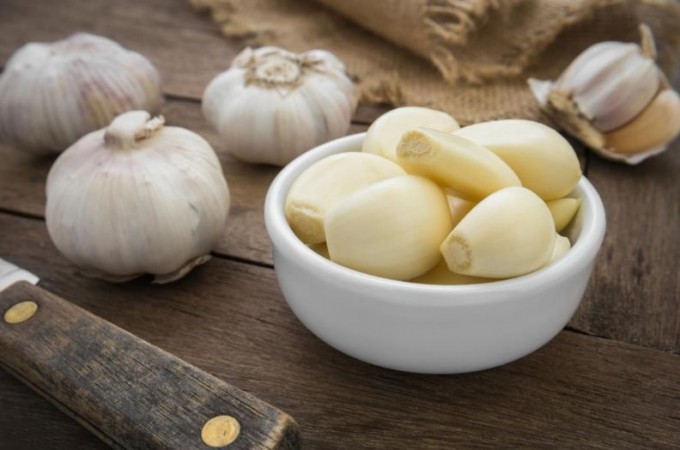
Garlic, a pungent and aromatic herb, has been utilized for its culinary and medicinal properties for centuries across various cultures. Beyond its role in enhancing the flavor of dishes, garlic has garnered attention for its potential health benefits. Widely regarded as a "panacea," garlic has been studied extensively for its diverse medicinal properties that may contribute to the prevention and management of various diseases. This article delves into the remarkable health benefits of garlic and its potential as a natural remedy for a range of ailments.
Historical Significance of Garlic
The history of garlic's use dates back to ancient civilizations such as the Egyptians, Greeks, Romans, and Chinese. It was revered not only for its taste but also for its medicinal properties. Ancient texts document its use to treat ailments ranging from infections and digestive issues to respiratory disorders. Its strong odor and taste were believed to offer protection against evil spirits and infections alike. Over time, the rich cultural history of garlic's health benefits has evolved into scientific exploration.
Nutritional Profile of Garlic
The therapeutic potential of garlic lies in its unique composition. Garlic is rich in sulfur compounds, particularly allicin, which is responsible for its distinct odor and many of its health-promoting properties. Additionally, garlic is a good source of vitamins, minerals, and antioxidants, including vitamin C, vitamin B6, selenium, and manganese.
Health Benefits of Garlic
Cardiovascular Health: One of the most widely recognized benefits of garlic is its potential to support heart health. Research suggests that garlic may help reduce blood pressure, lower cholesterol levels, and inhibit the formation of blood clots. These effects contribute to a reduced risk of heart disease and stroke. Allicin in garlic is believed to be responsible for these cardiovascular benefits by promoting blood vessel dilation and reducing inflammation.
Immune System Boost: Garlic's antimicrobial and immune-enhancing properties have long been acknowledged. The compounds found in garlic may help the immune system fight off infections and harmful pathogens. Regular consumption of garlic may lead to fewer colds and flu, as well as improved immune response.
Cancer Prevention: Emerging studies have indicated that garlic might have anticancer properties. Allicin and other sulfur compounds in garlic have been linked to potential cancer-fighting effects, particularly in the prevention of stomach and colorectal cancers. These compounds are believed to interfere with cancer cell growth and promote cell death.
Antioxidant Effects: Garlic contains potent antioxidants that help protect cells from oxidative stress and damage caused by free radicals. Antioxidants play a crucial role in reducing the risk of chronic diseases, including neurodegenerative conditions and certain types of cancer.
Anti-Inflammatory Properties: Chronic inflammation is at the root of many diseases, including cardiovascular diseases, diabetes, and arthritis. Garlic's anti-inflammatory effects can help mitigate this risk by inhibiting inflammatory pathways in the body.
Improved Digestive Health: Garlic may contribute to better digestive health by promoting the growth of beneficial gut bacteria. A healthy gut microbiome is linked to various aspects of overall well-being, from digestion and nutrient absorption to immune function and mental health.
Bone Health: Garlic's rich mineral content, including manganese, is beneficial for maintaining strong and healthy bones. Additionally, garlic's potential to reduce inflammation might indirectly support bone health by preventing the breakdown of bone tissue.
Detoxification: Garlic has been suggested to aid in the detoxification process by supporting the liver's function in breaking down and eliminating toxins from the body. This could potentially contribute to better overall health and vitality.
Incorporating Garlic into Your Diet
To harness the potential health benefits of garlic, it's important to incorporate it into your regular diet. Here are some easy ways to do so:
Raw Garlic: Consuming raw garlic is considered one of the most potent ways to access its medicinal properties. Crush or chop garlic cloves and let them sit for a few minutes to activate the beneficial compounds. You can add raw garlic to salads, dips, or even eat it with a slice of bread.
Cooking: Garlic's flavor and aroma enhance a wide range of dishes. Add minced or chopped garlic to sautés, stir-fries, roasted vegetables, and sauces to infuse your meals with its health benefits.
Supplements: If you find it challenging to consume garlic regularly, garlic supplements are available in various forms, such as capsules and oils. However, it's important to consult a healthcare professional before adding any supplements to your routine, as they can interact with certain medications and have potential side effects.
Garlic's remarkable journey from ancient remedy to modern-day superfood underscores its enduring significance in the realm of health and wellness. While it's essential to acknowledge that garlic is not a magical cure-all, the scientific evidence supporting its potential health benefits is compelling. From cardiovascular support to immune enhancement and cancer prevention, the diverse properties of garlic make it a worthy addition to a balanced and nutritious diet. As with any dietary change or supplementation, consulting with a healthcare professional is recommended to ensure that garlic consumption aligns with individual health needs and considerations.
Mizoram Achieves Milestone as First State to Launch Ayushman Bharat Microsite Project
Does steaming benefit the lungs? Here's how to do it correctly
5 Ways to Maintain Your Glossy Black Hair Using Pomegranate Leaves as a Hair Miracle